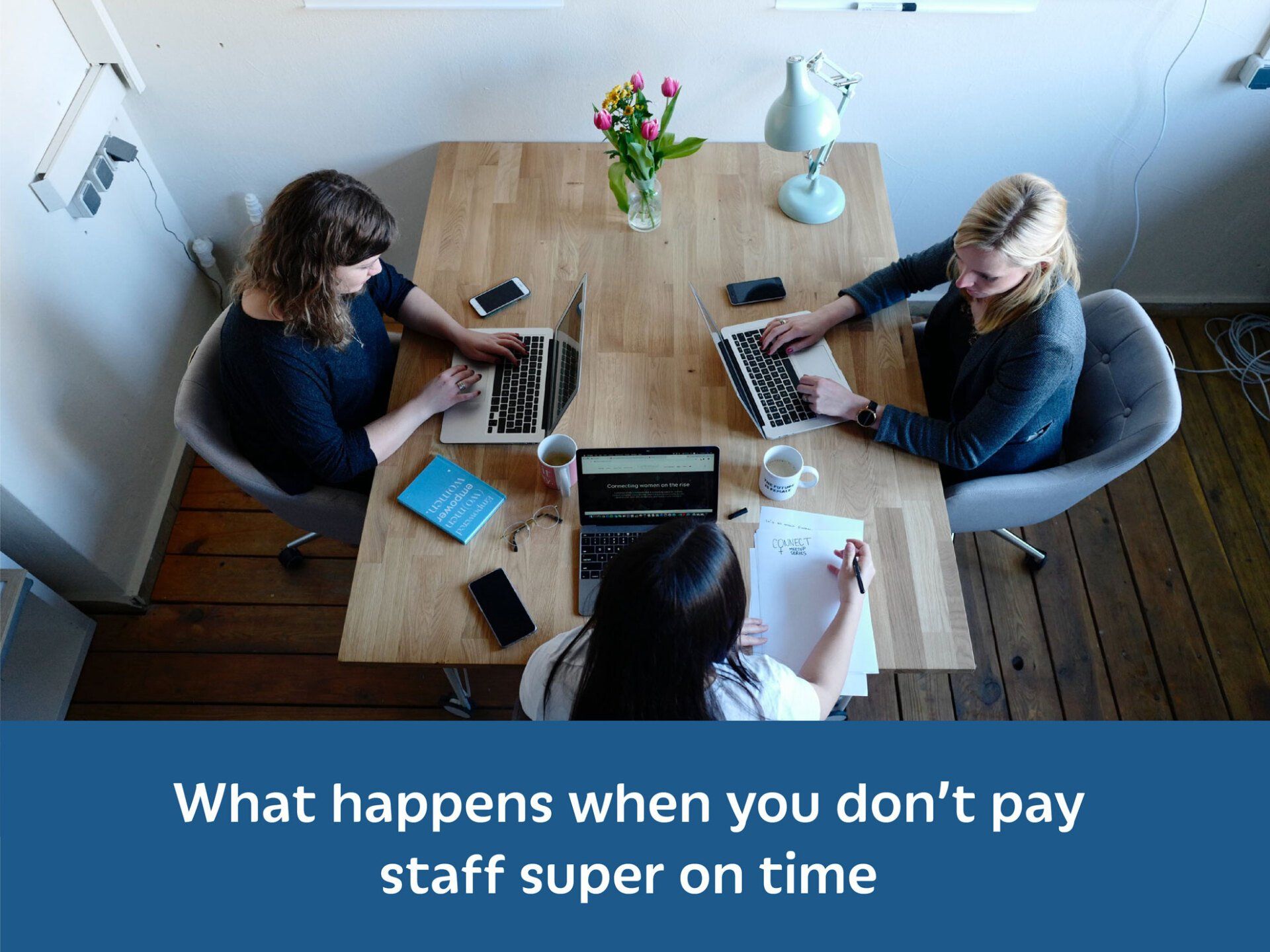What happens when you don’t pay staff super on time

Australian residents who are employed, aged 18 years old or over, and earn $450 or more (before tax) per month are eligible to receive Superannuation Guarantee (SG) contributions from their employer.
So, what happens if you don’t pay that super on time? You must lodge the superannuation guarantee charge (SGC) statement and pay the SGC to the Australian Tax Office. The SGC is more than the super you would have originally paid to the employee's fund and is not tax deductible. In other words, you’ll be left out of pocket as a penalty for leaving your staff in the lurch with their entitled super payments.
Write these dates down!
Payments must be made at least four times a year (minimum quarterly), but can be made more frequently if desired. For example, you might like to do this fortnightly or monthly. If you do, ensure you pay your total super guarantee (SG) contribution for the quarter by the due date.
Payments apply from the day employees start working for you, and payment due dates occur quarterly:
- For the period 1 July – 30 September, the due date is 28 October.
- For the period 1 October – 31 December, the due date is 28 January.
- For the period 1 January – 31 March, the due date is 28 April.
- For the period 1 April – 30 June, the due date is 28 July.
When a super due date falls on a weekend or public holiday, you can make the payment on the next business day.
One final thing…
When payments are late or paid to the wrong super account, the business owner/s and director/s are held personally responsible and liable for the fault. So, hypothetically, even if your business manager or in-house accountant is to blame, the penalty will be directed to you.
Don’t leave it (unless you leave it with us)
It’s important to ensure you employees are paid the super they’re entitled to, in the correct account, on time. As we’ve just explored, there are penalties for late payments, so it’s pretty important to get it right the first time. Rather than leave it to the last minute, you can leave it with Ascent Accountants instead.
It’s one less thing you need to think about. When you’re ready, contact us.
Need help with your accounting?








